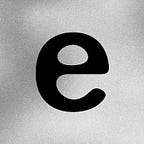El Estornudo Magazine: For an autonomous , diverse and creative journalism in Cuba (Short introductory letter)
The journalist is an athlete and journalism is a long-distance race. Convinced that the offices and commands result in osteoarthritis, we have decided to stand on the starting line and independently found an online non-fiction’s magazine on Cuba.
El Estornudo is the pretext that a group of journalist who are friends invented to not get away from each other more than they already had, with most of us still in Havana, another in Miami, and the rest in some town of passage.
In our own composition we challenged one of the most harmful concepts of the nation, one of the most stoutly hit us and that, despite its apparent porosity, the more indoctrinated followers brandished as definitive: the territoriality.
We will, of course, to tell the island of Cuba, but we know very well that Cuba, fortunately, is already in many other places, and that is many other islands. We do not want to avoid them. We believe that despite all that has been said, or perhaps precisely because of that, everything still remains to be said.
In Cuba, the media is a neocolonial republic. It has flag, coat, statutes, organizations, awards, forums, endless debates, but without independence. At the heart of the Cuban press, our festering preferences have replaced the coordinates of the craft.
Except lost, scattered exceptions, Cuban reporters, columnists and editorialists limited themselves to qualify; never (to) show.
They never tell the story of life because life is subversive.
If we follow the track to the militia worn adjectives used in the media to refer to the country we might find that at first there is any substantive. Epithets over epithets, ephemeris, epic chants recycled to exhaustion, a compact cloud of hyperbolic ratings, while down, untouched, the riverbed of reality is still flowing.
Our magazine wants, precisely, settle into nouns, into verbs. Naming things, people; narrate them. Honest writing is our political position.
Of course, we do not promise the impossible objectivity that the academies preach. The author writes himself while writing others.
Honesty is the narrow land of desire where the commitment to the reader, the fidelity to facts and sources, the strict analysis and creative freedom intersect.
Our main enemy is the emphasis, the stridency. Our main enemy is boredom, aesthetics aridity, white and black.
We decided not to dismiss any topic and focus, at least for now, in a genre: the chronicle. This involves delving into the virtues and sins of a society: to catch the common time of ordinary people and compare it with the clock of the power to put together news stories that will then be modest pieces in the puzzle of this era.
We will have to trace every story, attend and participate in the existence of people, interviewing the lead and supporting actors –making friends or be the adversary-, confront witnesses, put the data on the pan of the needle of the balance, revealing the plot, to denounce the undersides of all the slogans.
Chronic is the right scalpel to dissect a country that political propaganda -here and there- has distorted for decades and which, right now, no less dangerous stereotypes loom.
If you want to know Cuba beyond confrontation of slogans and the three or four topics recycled by the contemporary media scene, you have to read this magazine.
Moreover, our bet, rather than extraordinary, it’s pretty obvious. Find independence. To write without being accountable to any political commissar and without the risk that potential breadwinners govern or divert our editorial line.
Around 1939, Albert Camus said: “One of the good precepts of a true philosophy is to never fall in useless lamentations in front of a fact that can no longer be avoided. In France, today, the question is no longer to know how to preserve press freedom, but to look how, in front of the suppression of these freedoms, a journalist can remain free. The community is no longer interested in the problem, it concerns the individual”. Where it says France, put Cuba, and we’ll add something. There is no community that does not begin to save itself in the individual.
But do not cry fool. Lets spread the body with oil and keep at bay the idea of heroism. In Cuba, no one will shoot us in the head for doing journalism. Despite official censorship, political dogmas, conditioned fears on social scale, systematic inhibition of dissent in favor of extreme uniformity — misshapen fruits of a country locked in on itself for half a century of ideological confrontation-, reporting in Cuba remains a much less reckless activity than elsewhere; especially if compared with some countries in the region.
Our magazine, between nonchalance and allegory, is called El Estornudo, which involves, let’s say, a reflex reaction to the prevailing climate; the urgent need to expel something, the response to an irritation caused by pathogens. A little tired of ourselves, experts in talk rubbish without proposing, we launched this raid trying to hijack who knows what sensibilities.
According to the Prince de Ligne: “Enthusiasm is the most beautiful of defects”.
(El Estornudo: www.elestornudo.org)
